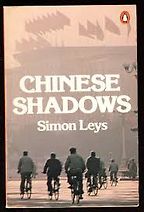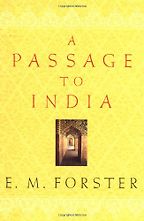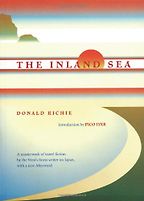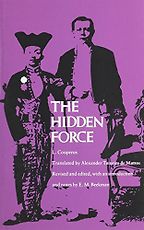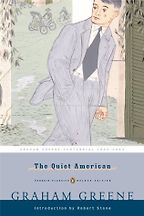You’ve chosen Western perspectives of the East as your guiding theme here. What first attracted your own interest in the East?
I studied Chinese history and literature at university. Not for any profound reason, but because I was at a bit of a loss, and at the time there was a fashion for looking to the non-Western world. Its usefulness was not apparent at the time because there were very few students of Chinese. They were divided between scholarly people who wanted to spend the rest of their lives with the classics, and the romantic Maoists. I wasn’t really part of either group. You couldn’t go to China at the time, unless you were a Friend of the People. So it seemed very abstract. Then I saw a lot of Japanese films, and that struck me as more interesting, so I switched my interest to Japan and got a scholarship to study cinema.
How do you feel that Western perspectives of the Far East have changed since then, with the rise of Asian tigers and now China?
That is of course the big difference. To some extent colonial attitudes were still in place when I was a student, even if there was no nostalgia for colonial rule. But it was still assumed that the West was the centre of the world, and the most powerful and prosperous. Japan was not yet taken all that seriously, and China was not considered to be a real rival at all. So Asia in general was still thought of as the third world. But now we live in a world in which people travel to China to see the wonders of modernity, and some people are fearful of it.
The West’s engagement with the East of course goes back centuries, to the early Jesuit missionaries.
They were of course very rare individuals. If you look at the 18th century view of the East – read Voltaire, for instance – they knew a bit, enough to idealise China or India, but you can’t claim they were well informed. It was still a very long way away. There were people who knew it well, including colonial civil servants who spent a long time in various parts of the East, but in general people didn’t know very much. Even in the sixties and seventies most people didn’t have a clue, including myself. Now I think more people are at least half informed about Asia, and that means people have fewer prejudices.
Your first book selection is Chinese Shadows by Simon Leys, from 1977.
This book came like a bolt of lightning, because in the seventies – despite the fact that the Cultural Revolution was still going on – many China watchers were starry eyed about Maoism as a wonderful experiment. Those who went to China saw what they wanted to see, and usually came back with glowing accounts of a New China, and a uniquely collective and altruistic human being not driven by material desires.
Chinese Shadows was a completely different take. It’s a collection of essays in which he totally demolishes the romantic myth of the Maoist experiment. This was especially devastating in France, because Paris was the centre of intellectual Maoism. Leys is a wonderful essayist – very sharp and funny – and he demolished the reputations of famous writers on China like Ross Terrill. It was not well received at all at my university. Some of my professors were inclined to see in China at the time something that might not work in the West, but which was a unique product of an ancient high civilisation. Leys really put the cosh on that.
So he was one of the first writers to say the emperor had no clothes.
Yes. And don’t forget that a lot of this has to do with the history of the Left in the West, regardless of China. In the sixties and seventies, most of the new left were very disillusioned with the Soviet Union, and Maoist China took the place of their notion of left wing experimentation. There was a lot of third worldism as well, with Raymond Williams at the forefront – the non-Western world as the rural rebellion against the Western metropole, a kind of neo-colonial struggle. And China became the focus of that.
Moving to India, will you introduce EM Forster’s 1924 novel A Passage to India for us?
It’s about the friendship – in the end thwarted by the colonial situation – between an English teacher living in India and his Indian friend. Friendship is about relating to one another as equals, and as long as colonial rule existed, an Indian and an Englishman could not do that, so their friendship was impossible. That’s the underlying theme. Its description of India – not only of the landscape but of the relations between Indians and Europeans – makes it one of the great colonial novels. There are also subplots with ladies discovering their own sexuality, playing off the theme of the sensuousness of the East.
What portrait does it paint of Britain’s influence on India?
One of the novel’s strengths is that it’s not polemical. It’s very clear that Forster disapproved of colonial rule, but he doesn’t paint a caricature of brutal Brits and Indian victims. It’s much more subtle than that. The character of Cyril Fielding, the young Englishman full of goodwill, is true to life in that a lot of British people in India at the time did a lot of good – but in the end it was the system that was the problem.
Do you feel Britain still has a special connection to India today? Or is the star of Korea, Japan and China rising faster?
Yes, I think it is. Those other countries are much more plugged into a global youth culture than India is. I think people in their twenties have probably been much more exposed to Chinese, Japanese and Korean popular culture than to Indian culture. The closest most people in Britain get to India today is having a curry or watching the cricket. Japanese anime or Korean pop music is better known even than Bollywood films.
The next country on our tour is Japan, with Donald Richie’s The Inland Sea.
Donald Richie, who died earlier this year, was a great friend and mentor of mine. He first arrived in Japan in 1947, when Japan was still occupied by the United States, and he stayed there, as a journalist and a writer, more or less until his death. He introduced Japanese cinema to the West through his books.
The Inland Sea, which was written in the sixties, is his love poem to Japan as he viewed it – which is quite romantically. It’s about a trip he makes around the Inland Sea, a very beautiful part of Japan filled with small islands. The landscape is extraordinary. He travels there just as Japan is modernising very fast – the cities are transformed as the old Japan disappears, as is happening in China now. So he goes to the part of Japan which to him is the least spoilt. It shows his love for a certain idea of Japan that’s disappearing – which is always the romantic view. Much of literature consists of describing a vanishing or a vanished world.
What are the communities he spends time with?
Many of them are small fishing villages, where people still have a very rural, traditional way of life. Even though he’s describing reality, he infuses it with a kind of poetry. It’s as much a product of his own romantic imagination as it is of life in Japanese fishing villages in the 1960s.
Tell us about The Hidden Force by Louis Couperus.
In a way this is a bit like Passage to India, although it was written earlier, at the very beginning of the 20th century. It’s a very early example of a novelist who saw the futility of colonialism, and how a small number of Europeans – in this case the Dutch rulers of the Dutch East Indies – thought they knew what they were doing. Like Forster, he’s not being polemical. But he does describe, very sympathetically, the illusion the Europeans had that they would control these countries forever. Even then they didn’t have as much control as they thought.
The story is about the wife of a Dutch colonial civil servant who has an adulterous affair, and she’s punished in a sort of supernatural way by visitations. Sexually it’s an extraordinarily explicit book, certainly for its time. There is a whole depth to the culture of the Dutch East Indies which the Europeans barely understood if at all, and that was undermining their sense of omnipotence everyday. This is associated with certain supernatural occurences, which Couperus uses as a metaphor for a whole world that the West simply didn’t see or know existed. That’s the hidden force. It’s about the illusion of Western omnipotence.
Certainly much of the history of Western engagement with the East, above all during the colonial era, has been one of bullying and annexing.
Yes it has, but what Couperus saw was that no amount of bullying will in the end lead to mastering countries which one doesn’t understand. It’s interesting to think how many literary masterpieces Western European colonial rule of Asia has produced. There’s not that many, because very few were so clear sighted. Forster and Couperus were, without having a political agenda. They just saw more clearly and more profoundly than most people did at the time.
How is The Quiet American still relevant to readers today?
The Quiet American is much more about America than it is about Indo-China. The titular character is an idealistic young man in Indo-China, probably working for the CIA, whose well-meaning actions cause havoc. That is a sort of microcosm for what has actually happened in various parts of the world because of American intervention.
The Dutch and the British colonial enterprise was largely a commercial one, or in both cases it certainly began as a commercial enterprise, by traders. But the American attitude towards the non-Western world, from the late 19th century onwards, has been of a different kind. The Americans of course see themselves as being on the side of the anti-imperialists, as they fought an anti-colonial war themselves with Britain. So they couldn’t think of themselves as imperialists, even if they were – specifically in the Philipinnes, which they ran as their own colony. But there has been a strong sense of misguided idealism. This is something to do with the missionary spirit, and the Americans have been very active in that sense. But it’s also to do with the way in which Americans see themselves as having a mission to bring their concept of freedom, equality and democracy to the rest of the world. That’s rather akin to France, and both are Western democracies born from revolution.
Get the weekly Five Books newsletter
Graham Greene should not be seen in the way that Couperus and Forster were, of being fundamentally out of sympathy with colonialism. He was a Francophile. And in The Quiet American you get a very strong impression that the French, with their superior wisdom and their rich European sense of history, really understood the oriental mind, as people still put it in those days – whereas the brash, superficial Americans with their naïve idealism had no idea what they were doing, and caused great problems.
Do you feel there’s still a Western-centric perspective of Asia, born from the idea that West and East are two different worlds?
There are two conflicting tendencies. One is to see West and East as two totally different worlds – that they must all be different to us. But it’s equally a mistake to think that we’re all the same and share all the same values – that there is no distinction. The thing to get rid of first is the notion that there is such a thing as the East. Because there isn’t. The differences inside what is geographically Asia are vast, so there is no such thing as the East really. There are certain things that so-called Confucian cultures have in common, and other things that they don’t. There are certain things that the Muslim world has in common, but then again the differences between Iran, with its Persian tradition, and other Arabic nations are considerable. I think the idea of East and West has become defunct. You have to look at the world more closely.
Five Books interviews are expensive to produce. If you're enjoying this interview, please support us by donating a small amount.
Are romantic, orientalist ideas about the East still at play?
I certainly think they’re less common than they were. The world has become smaller. For many people in their twenties, it has become a matter of course that they go to Asia for their holidays, or to work, or study. But different misconceptions occur, like the notion that the [success of the] Chinese model shows a kind of super efficiency on the side of the Chinese. Some people tend to idealise the Chinese model. The notion of oriental cruelty may not yet be completely dispelled. There are bound to still be misconceptions. Then again, there are clichés among European countries that are still at play.
Finally, tell us about your new book Year Zero.
It’s about what happened when World War Two was over – about the consequences, and how a new world was created out of the ashes. The world that my generation grew up in is now rapidly coming to an end – I mean the institutions or ideals of a united Europe, the United Nations, the welfare state and so on. But it’s also about what happens when wars devastate societies, and how you put them together again.
So are we in an entirely new era now?
We’re never in an entirely new era. One of the fallacies of cataclysmic years is that somehow the whole world starts all over again from year zero – which is the title of the book and how 1945 was known in Germany, Stunde Null. But of course it’s never really Stunde Null, because you inherit a great deal from history. Some things change and others don’t.
Five Books aims to keep its book recommendations and interviews up to date. If you are the interviewee and would like to update your choice of books (or even just what you say about them) please email us at [email protected]
